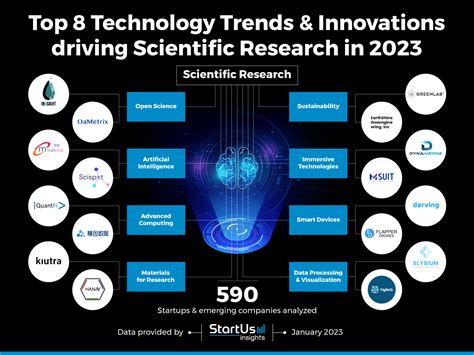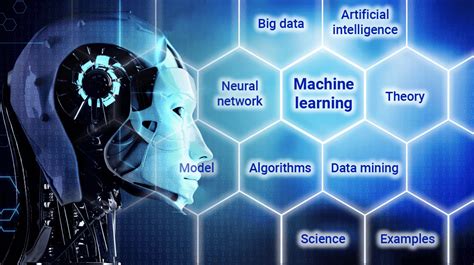Breaking News


Popular News


Explore the latest in AI, biotechnology, space exploration, nanotechnology, and quantum computing. Discover the future of science and emerging technologies.In today’s rapidly evolving world, the field of science is experiencing unprecedented advancements and innovations. From artificial intelligence and machine learning to biotechnology, space exploration, nanotechnology, and quantum computing, the future of science is truly exhilarating. In this blog post, we will delve into the groundbreaking developments in these emerging technologies and explore their potential impact on the way we live, work, and interact with the world around us. As we stand on the brink of a new era of scientific discovery, it’s essential to stay informed about the latest trends and breakthroughs shaping the future of science. Join us as we embark on a journey through the frontiers of technology and uncover the potential implications of these cutting-edge advancements. Let’s dive into the exciting world of the future of science and all that it has to offer.
Contents

Artificial Intelligence (AI) and Machine Learning (ML) are two of the most exciting and rapidly evolving fields in the world of technology and science. AI refers to the development of computer systems that can perform tasks that typically require human intelligence, while ML is a subset of AI that focuses on the development of algorithms and statistical models that allow computers to improve their performance on a specific task through experience.
One of the key areas where AI and ML are having a significant impact is in the field of healthcare. Researchers and scientists are using these technologies to analyze large amounts of medical data, such as patient records and imaging data, to help diagnose diseases, develop personalized treatment plans, and even discover new drugs and therapies. The potential of AI and ML to revolutionize healthcare is truly staggering, and their continued development and refinement will undoubtedly lead to improved patient outcomes and more efficient healthcare delivery.
Another area where AI and ML are making waves is in the realm of autonomous vehicles. Companies like Tesla, Uber, and Waymo are investing heavily in AI and ML technologies to develop self-driving cars that can navigate the complexities of the road with minimal human intervention. While there are still many technical and regulatory hurdles to overcome, the potential benefits of autonomous vehicles, such as reduced traffic congestion, improved road safety, and greater mobility for individuals with disabilities, are driving continued investment and innovation in this space.
In the coming years, we can expect to see even greater advancements in AI and ML, with these technologies playing an increasingly central role in nearly every aspect of our lives. From personalized virtual assistants and smart home devices to more accurate weather forecasting and improved financial analysis, the potential applications of AI and ML are virtually limitless. As these technologies continue to evolve, it is crucial that we also address the ethical and societal implications of their widespread adoption, ensuring that AI and ML are developed and deployed in a responsible and equitable manner.

The field of biotechnology has been experiencing rapid advancements in recent years, with groundbreaking innovations and discoveries transforming the way we approach healthcare, agriculture, and environmental conservation. One of the most exciting developments in biotechnology is the emergence of gene editing technologies such as CRISPR, which allow scientists to modify the genetic material of organisms with unprecedented precision and efficiency. This has opened up new possibilities for treating genetic diseases, developing genetically modified crops, and understanding the fundamental mechanisms of life.
Additionally, advancements in synthetic biology have enabled researchers to create novel biological systems and organisms that serve a wide range of purposes, from producing biofuels to manufacturing pharmaceuticals. The ability to design and engineer biological entities with specific functionalities has immense potential for addressing pressing global challenges, from providing sustainable sources of energy to improving human health.
Furthermore, the advent of personalized medicine has revolutionized the way we approach healthcare, with technologies that allow for tailored treatments based on an individual’s genetic makeup and physiological characteristics. This has the potential to optimize treatment outcomes and minimize adverse effects, ushering in a new era of precision medicine that is transforming the way we diagnose, treat, and manage diseases.

Space exploration has always been a fascinating subject for researchers, scientists, and the general public alike. With the advancement in technology and increased interest in space exploration, there have been numerous breakthroughs in this field in recent years. These breakthroughs have opened new doors for exploring the universe and have the potential to revolutionize our understanding of outer space.
One of the most significant breakthroughs in space exploration is the development of reusable rockets. SpaceX, founded by Elon Musk, has successfully launched and landed reusable rockets, drastically reducing the cost of space missions. This innovation has made it possible for more frequent and cost-effective space exploration, paving the way for further advancements in the field.
In addition, the discovery of water on the Moon and Mars has sparked new interest in the possibility of human colonization of these celestial bodies. The presence of water is a crucial factor for sustaining life, and finding it on other planets has immense implications for the future of humanity. Scientists and researchers are now working on ways to harness this valuable resource for potential future space missions and human settlement.
Furthermore, developments in propulsion technology have the potential to significantly speed up space travel. For instance, the concept of ion propulsion, which uses electromagnetic fields to propel a spacecraft, has shown promise in achieving higher speeds and reducing travel time for long-distance space missions. Such advancements in propulsion technology could make interplanetary travel more feasible and efficient than ever before.

Nanotechnology is a rapidly growing field with the potential to revolutionize various industries. Nanotechnology involves the manipulation of matter on a molecular and atomic scale, leading to the creation of new materials and devices with enhanced properties. One area of nanotechnology that is garnering a lot of attention is in the field of medicine.
Researchers are exploring the use of nanotechnology to develop targeted drug delivery systems, which could improve the efficacy and reduce the side effects of various medications. Additionally, nanotechnology is being used to create diagnostic tools that can detect diseases at an early stage, leading to more effective treatments.
In the electronics industry, nanotechnology is paving the way for smaller, more powerful and energy-efficient devices. By using nanomaterials, researchers are developing innovative electronic components that are capable of performing at a superior level compared to traditional materials.
The field of nanotechnology is constantly evolving, and with continued research and development, it has the potential to bring about major advancements in diverse areas ranging from healthcare and electronics to environmental sustainability.

Quantum computing, an emerging field in the world of technology, has been making significant progress in recent years. This revolutionary technology utilizes the principles of quantum mechanics to process information in a way that traditional computers cannot. By harnessing the power of quantum bits, or qubits, quantum computers have the potential to solve complex problems at an unprecedented speed.
One of the key advancements in quantum computing is the development of quantum processors with increasing numbers of qubits. Companies such as IBM, Google, and Rigetti have been at the forefront of this progress, with each unveiling quantum processors with more qubits and improved performance. These developments are paving the way for quantum computers to tackle real-world problems that are currently infeasible for classical computers.
In addition to hardware advancements, there have also been significant breakthroughs in quantum algorithms and error correction techniques. Quantum algorithms, such as Shor’s algorithm and Grover’s algorithm, have demonstrated the potential to exponentially speed up the factorization and search problems, respectively. Furthermore, error correction techniques, such as quantum error correction codes and fault-tolerant quantum gates, are crucial for mitigating the effects of noise and decoherence in quantum systems.
As quantum computing continues to make progress, it holds the promise of revolutionizing various fields, including cryptography, drug discovery, and optimization problems. The rapid advancements in quantum computing are paving the way for a future where complex problems can be tackled with unprecedented speed and efficiency, ultimately redefining the boundaries of computation as we know it.

What are some examples of emerging technologies in the field of science?
Some examples of emerging technologies in science include gene editing, artificial intelligence, quantum computing, and nanotechnology.
How do emerging technologies impact scientific research and innovation?
Emerging technologies provide scientists with new tools and methodologies to conduct research, leading to groundbreaking discoveries and innovations.
What are some potential ethical concerns associated with emerging technologies in science?
Ethical concerns related to emerging technologies in science include issues of privacy, genetic modification, and the potential misuse of artificial intelligence.
How can society benefit from advancements in science and technology?
Advancements in science and technology can lead to improved healthcare, enhanced communication, sustainable energy solutions, and increased efficiency in various industries.
What role does collaboration play in the development of emerging technologies?
Collaboration among scientists, researchers, and industry experts is crucial for the development and implementation of emerging technologies in science.
What are some challenges in the adoption of emerging technologies in scientific fields?
Challenges in the adoption of emerging technologies include regulatory hurdles, funding limitations, and the need for specialized expertise in handling advanced tools.
How can individuals stay informed about the latest advancements and future trends in science and technology?
Individuals can stay informed by following reputable scientific journals, attending conferences, and engaging with experts in the field through social media and online forums.